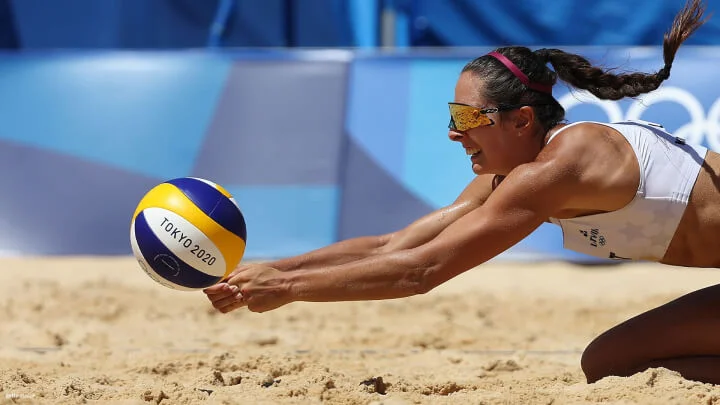Bgroho Insights
Your daily source for news, tips, and inspiration.
Bump, Set, Spike: The Secrets of Volleyball Culture
Discover the hidden gems of volleyball culture! Uncover tips, tricks, and the passion that fuels the game. Join the spike fest now!
Understanding Volleyball Etiquette: The Unwritten Rules of the Game
Understanding volleyball etiquette is essential for both players and spectators alike, as it helps create a respectful and enjoyable atmosphere for everyone involved. First and foremost, players should always acknowledge their teammates and opponents with a shake of the hand or a friendly nod before and after matches. This simple gesture promotes sportsmanship and sets a positive tone for the game. Additionally, it is important to respect the referee's calls, even if you may disagree. Arguing or showing dissatisfaction can disrupt the flow of the game and distract from the overall experience.
Moreover, understanding the unwritten rules of volleyball extends off the court as well. Players should be mindful of their behavior during matches—cheering for your side is encouraged, but excessive taunting or negativity directed at opponents is frowned upon. According to common etiquette, players should also avoid interrupting their opponents during serves or critical plays; this shows respect for their focus and the competitive nature of the sport. By embodying these principles, players can foster a welcoming environment that enhances both personal enjoyment and the spirit of the game.

The Evolution of Volleyball Culture: From Grassroots to Global Phenomenon
The journey of volleyball culture from its grassroots beginnings to a global phenomenon is a testament to the sport's enduring appeal and adaptability. Initially developed in the late 19th century as an indoor sport, volleyball quickly gained popularity in communities across America and Europe. Community leagues and school teams formed the foundation of the sport, fostering a sense of camaraderie and teamwork among players. As the sport evolved, it began to embrace inclusivity, welcoming players of all ages, genders, and skill levels, which significantly contributed to its growth. The early grassroots movements laid the groundwork for what would eventually become a major international sport, culminating in its inclusion in the Olympic Games in 1964.
As volleyball transcended borders and cultural differences, it evolved into a global phenomenon that captured the hearts of millions. National federations sprung up, and professional leagues emerged, offering aspiring athletes the opportunity to showcase their talents on the world stage. This globalization of volleyball led to an infusion of styles and techniques from different regions, enriching the game and fostering a vibrant, competitive spirit. Today, volleyball is played in over 200 countries, with professional leagues and international tournaments drawing fans worldwide. The evolution of volleyball culture is not just about the sport itself but the unifying spirit it embodies, bringing people together through the sheer love of the game.
How Team Dynamics Shape Volleyball Success: Insights from Coaches and Players
Team dynamics play a crucial role in shaping the success of volleyball teams at all levels. Coaches often emphasize the importance of communication, trust, and mutual respect among players. When team members understand their roles and responsibilities, it fosters a collaborative environment that can lead to better performance on the court. Many coaches point out that the strongest teams are those where players can openly share feedback and support each other, creating a positive atmosphere that fuels their drive for success.
Players echo these sentiments, highlighting that strong team dynamics not only enhance performance but also contribute to individual growth. When athletes feel connected and valued within their team, they are more likely to push their limits and contribute to collective goals. According to several players, the sense of camaraderie and shared purpose can turn challenging moments into opportunities for growth, ultimately leading to a more resilient and adaptable team capable of overcoming obstacles in pursuit of volleyball success.